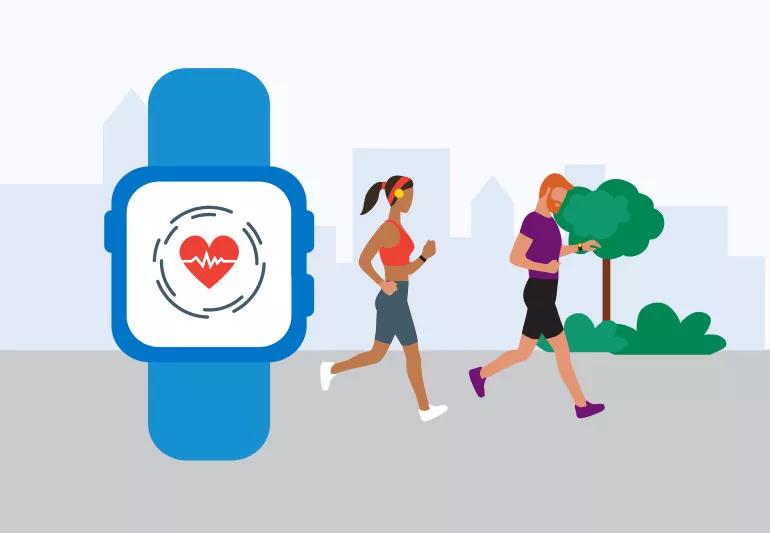Bradycardia, or a low heart rate, is more likely as you age — and could be a sign of health issues

Image content: This image is available to view online.
View image online (https://assets.clevelandclinic.org/transform/ca31f5b4-de2a-46fd-8b04-992073bcea9a/heart-Rate-Exercise-1290566152-770x533-1_jpg)
Two people exercising in part with heart rate monitor watch in foreground.
You expect your body to slow down a bit as you age, but if the same slowing happens with your heart, is that a good or a bad thing?
Advertisement
Cleveland Clinic is a non-profit academic medical center. Advertising on our site helps support our mission. We do not endorse non-Cleveland Clinic products or services. Policy
A slow heart rate (or a low heart rate) is known as bradycardia and occurs frequently in older adults.
“As people get older, there is occasional normal wear and tear on the electrical system of the heart,” says cardiologist Jose Baez-Escudero, MD. “As a result, the normal rhythm tends to slow down.”
Dr. Baez-Escudero shares when to worry about low heart rate — and the signs and symptoms to watch for.
What does a low heart rate mean? Doctors consider a low heart rate to be 60 beats per minute (bpm) and below. In fact, if you have bradycardia, you’ll have a low resting heart rate below 60 even when you’re awake and active. In contrast, a normal range is 60 to 100 bpm while awake.
It’s very possible to have a slow heart rate and experience no symptoms. However, if you have symptoms but ignore them, it can sometimes cause more serious problems.
Consult a healthcare provider if you’re experiencing some of these symptoms and you have an associated slow heart rate:
What heart rate is too low? If your heart rate is slow (below 60 bmp) but you don’t have symptoms, there’s no reason to worry. But it’s a good idea to know the signs of trouble because bradycardia in some cases does require treatment.
Advertisement
For example, if your heart rate drops into the 30s, you might not get enough oxygen to your brain, making fainting, lightheadedness and shortness of breath possible. Blood can also pool in your heart chambers, causing congestive heart failure.
For most people who are younger, highly trained athletes or work out regularly, a low heart rate while exercising — defined as below 60 bpm — is normal and healthy. If you’re physically active, your heart pumps blood more efficiently.
The same goes for your nightly snooze. It’s normal to have a low heart rate while sleeping. When you’re asleep, your heart rate normally slows down to 40 to 60 beats a minute.
Many things can bring on a slow heart rate. Low heart rate causes include:
The most common cause of bradycardia is a malfunction in your heart’s natural pacemaker, the sinus node. It controls how quickly the top and bottom heart chambers pump blood through the body.
Another cause of bradycardia is an atrioventricular block (AV block), in which the top and bottom chambers don’t communicate well and your heart rate drops as a result.
“It’s like having virtual electrical cables and wires inside the heart,” Dr. Baez-Escudero says. “These deteriorate as we age. Common medications used in older populations can also often make bradycardia more significant.”
Age is the most common risk factor for developing bradycardia. The condition is most common among men and women over age 65.
Illness or other conditions may also cause bradycardia. These include:
Congenital heart defects, diabetes or long-standing high blood pressure also may make bradycardia more likely, says Dr. Baez-Escudero.
If you’re concerned about a low heart rate, visiting your physician can help determine the causes. Your healthcare provider will first ask about your usual activities and conduct a physical exam.
They may use an electrocardiogram (EKG) to measure the electrical signals in your heart, in order to see whether they’re firing correctly. Wearing a 24-hour monitor can also help your doctor see how your heart performs over time.
Once they decide you might need treatment, your provider will try to rule out medications or other pre-existing conditions as causes. Sometimes, changing medications or similar strategies can solve the problem.
Advertisement
If not, implanting a pacemaker via minimally invasive surgery is the only option to speed up your heart rate, Dr. Baez-Escudero states.
But he notes that bradycardia isn’t often an emergency, so providers have time to choose the right treatment.
“In general, bradycardia allows time for us to evaluate the condition and rule out if any other condition is responsible,” Dr. Baez-Escudero says. “Then, we can adjust medications or take other steps if we need to.”
Advertisement

Sign up for our Health Essentials emails for expert guidance on nutrition, fitness, sleep, skin care and more.
Learn more about our editorial process.
Advertisement
Your pulse and heart rate measure different body processes, but in most cases, they’re the same number
Deep breathing, yoga and meditation are just some ways to bring your heart rate down right away
Lifestyle changes can help strengthen your heart so it doesn’t have to work as hard when your body is at rest
A resting heart rate below 35–40 beats per minute or over 100 beats per minute may be cause for concern
Your heart rate naturally slows down while you sleep, but lower numbers aren’t always concerning
Both are related to your cardiovascular system, and both can impact the other
60 to 100 beats per minute is ‘normal,’ but you can still be healthy outside that range
Setting a max heart rate for kids can be tough, so focus more on how they feel during activity
Although it could be used as a moisturizer, this new trend is not recommended
Communicating clear limits helps protect your time, energy and emotional well-being
High cholesterol can be genetic, but testing and treatment can lower your heart disease risk